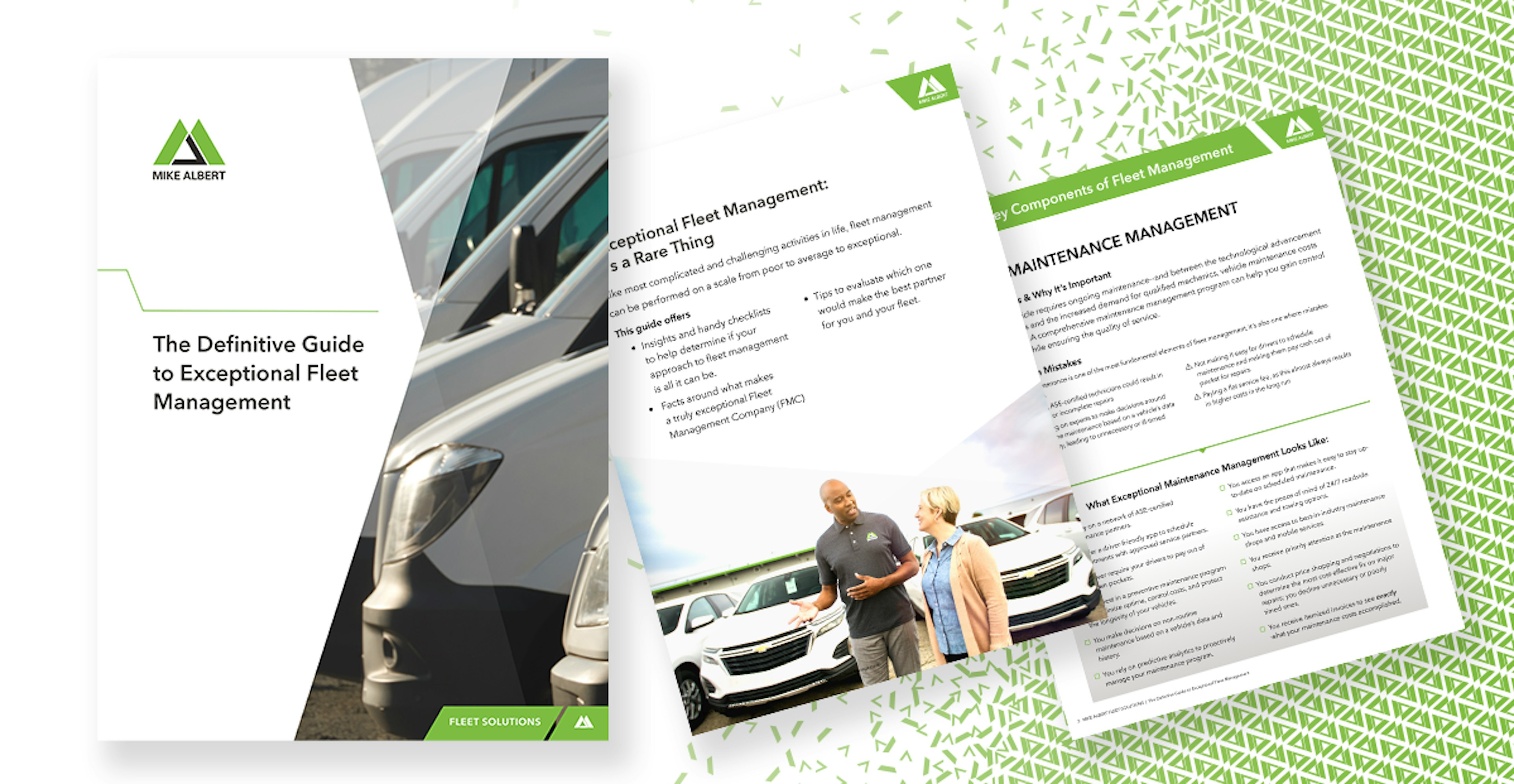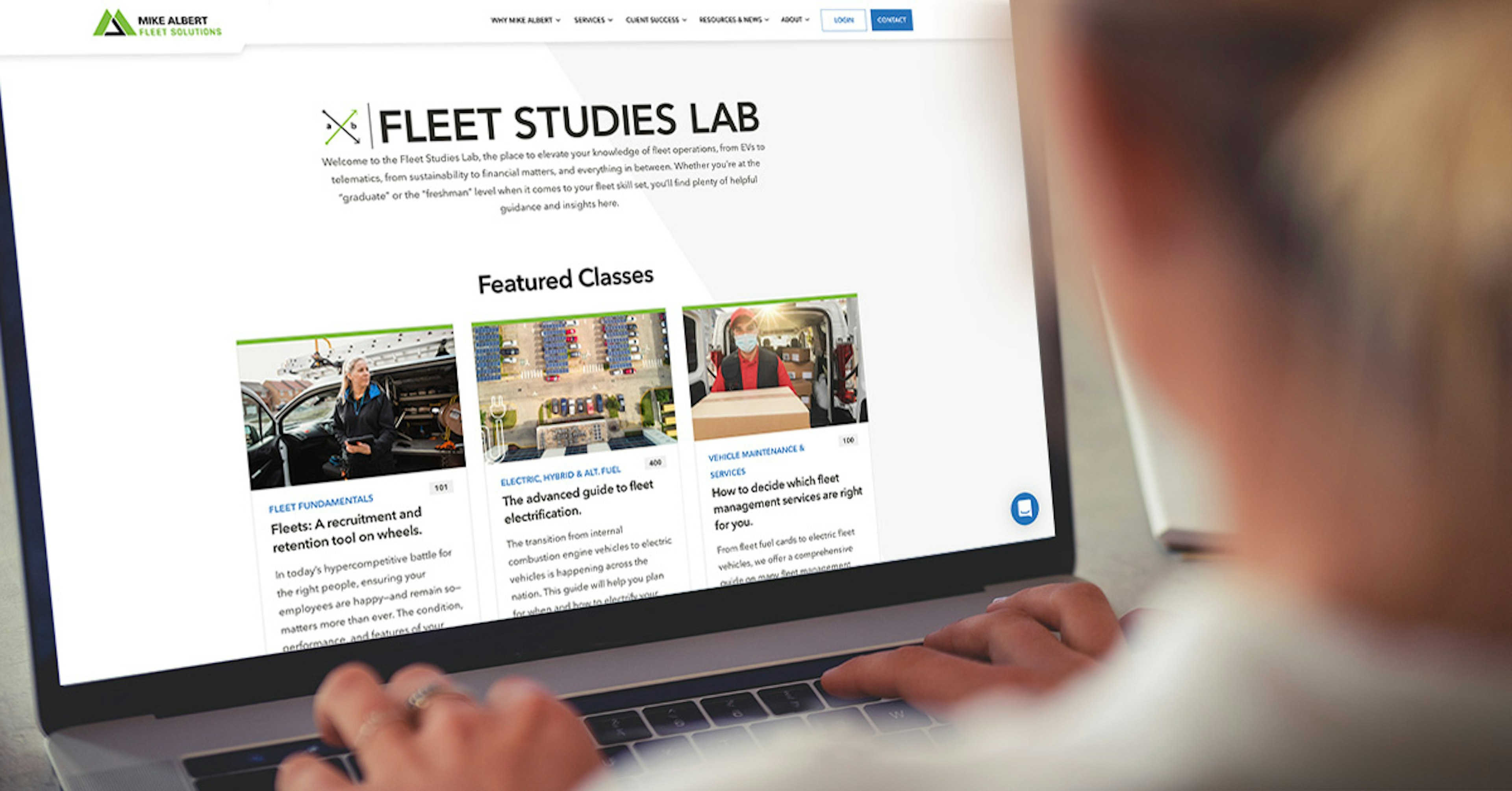
Fleet Management
Understand the importance of vehicle acquisition, driver safety, controlling costs, and more.
Complimentary Download: Definitive Guide to Exceptional Fleet Management

Share your info to access our exclusive guide.
What is fleet management?
In general, fleet management is the art and science of ensuring that your organization’s fleet operations support your business objectives and overall corporate strategy.
In more specific terms, fleet management is the administrative work supporting a group of commercial vehicles that are essential to your organization’s operations. This involves all the people, systems, processes, and tools that go into keeping these vehicles safe, reliable, and available to efficiently move people, products, or services from one point to another. A comprehensive fleet vehicle management program should cover everything from vehicle acquisition and leasing to maintenance management and the tracking of metrics and KPIs to improve safety and efficiency. Most importantly, it should provide visibility to all of those tasks—all at once.
Most companies that provide a service that involves vehicles will rely on fleet management to streamline their operations and save money, including industries like:
- Contractors
- Pest control
- Construction
- Food & beverage
- Telecommunications and utilities
- Courier and delivery services
- Government agencies and municipalities
- And more
Debunking fleet management myths
There are a lot of myths and misconceptions about fleet management. We've debunked the top five in this short video.
Best practices in fleet management.
A cohesive fleet management strategy can reduce a company’s administrative burden, increase revenue while decreasing operating costs, act as an employee attraction and retention program, and, ultimately, help a business reach its corporate goals.
The essentials of fleet management typically fall into three main categories: Finance, Operations, and Analysis.
Financial tactics
- Strategic funding ie. Open-end lease vs. closed-end lease vs. ownership
- Cash flow requirements
- EBITDA (Earnings Before Interest, Taxes, Depreciation, and Amortization) prioritization
- Depreciation rate
- Owned asset value
- Manufacturer incentives
- Vehicle acquisition strategy
Operational tactics
- Streamline administrative tasks such as toll management reporting
- Maintain compliance (DOT & DMV)
- Proactive vehicle maintenance
- Monitor drivers and vehicles
- Implement driver safety programs
- Standardize and right-size vehicles
- Upfit vehicles for equipment and occupational needs
- Track fuel usage
- Brand vehicles
- Keep consistent records in a centralized location
Data Analysis
- Total cost of operation
- Cost per mile
- Maintenance by mileage
- Fuel efficiency
- Third party benchmarking
- Productivity
- Vehicle life cycle
- Strategic vehicle disposal
What are fleet management companies?
A fleet management company (FMC) specializes in the strategic management of commercial fleets, partnering with businesses or government agencies to manage some or all aspects of their fleet program. Dozens of fleet management companies exist in the United States alone—but the right company will listen to your specific needs and then work with you to develop a highly-personalized plan that helps you meet your goals.

Benefits of partnering with an FMC.

When should you partner with an FMC?
This largely depends on your business and your goals, but there are several considerations that may indicate that it’s time to enlist the support of a fleet management company. Many companies will opt to work with a fleet management company when they reach a certain number of vehicles—often between 15 and 25 units—but others will consider working with an FMC when:
- Their costs are too high.
- Safety becomes a concern.
- Internal resources aren’t available or sufficient to keep vehicles in top condition.
- The business is growing or expanding into new territories.
- Existing fleet operations don’t support overarching business goals.
At Mike Albert Fleet Solutions, we’ve harnessed the power of Fleet Science®: Our approach to collecting, organizing, and analyzing specific data to build a holistic view of your fleet and identify key insights that can reduce costs, optimize operations, and improve safety.
"The most important questions to consider when choosing an FMC for your business should be: How much of a burden can they take off of your shoulders, and how can they help you reach your goals?"
Fleet management services
Organizations utilize fleet management services to maximize vehicle and driver safety, efficiency, and compliance, while streamlining fleet administration.
Want to perfect your fleet smarts? Head over to the Fleet Studies Lab for everything you need to know about fleet operations—from EVs and telematics to sustainability, finances, and beyond.
Choose your subject area:

Fleet Studies Lab
Everything you need for the journey ahead.
Interested in connecting with us but not sure who to contact?
Let's chat about your fleet management needs.
Share your info with us and choose a time to discuss your fleet with a member of our team.